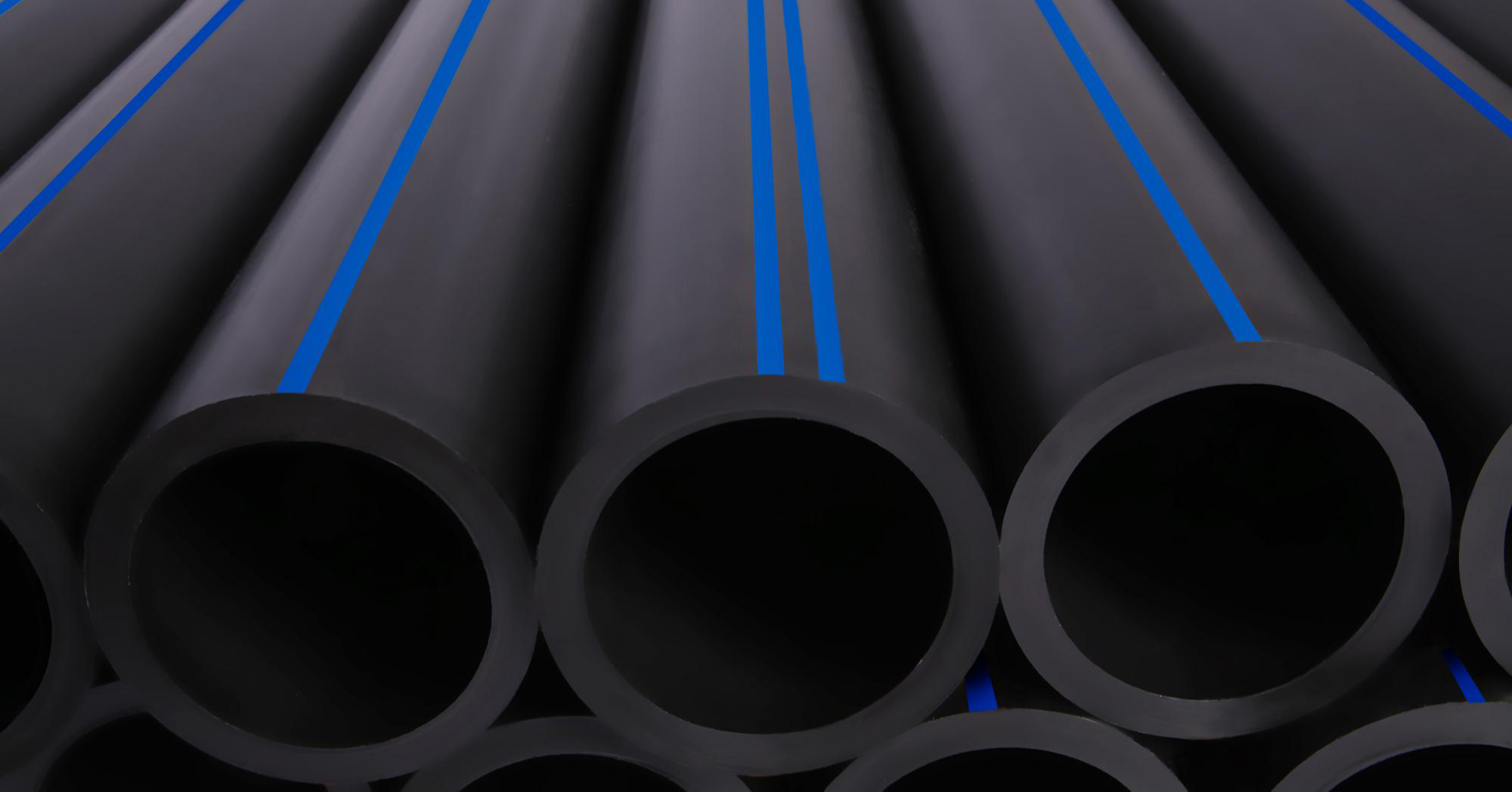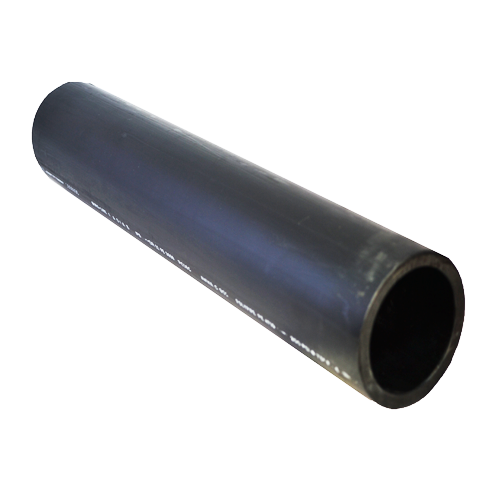A Comprehensive Guide to the Different Uses HDPE Pipe in Construction and Market
HDPE pipelines have actually become a critical element in modern-day construction and industrial applications. Their distinct residential or commercial properties, such as resistance to rust and light-weight layout, make them ideal for a large range of uses. From water systems to farming irrigation, HDPE pipes provide options that boost performance and sustainability. Recognizing their varied applications is essential for professionals wanting to enhance facilities. What certain benefits do these pipes give each market?
Water and Circulation Equipments
Water and circulation systems are critical components of urban infrastructure, frequently counting on high-density polyethylene (HDPE) pipes for their longevity and performance. These systems transportation safe and clean water from therapy facilities to consumers, guaranteeing availability and safety and security. HDPE pipelines are preferred for their resistance to rust, chemicals, and extreme temperatures, which enhances their longevity and lowers upkeep prices. Additionally, their light-weight nature enables less complicated installment and transport, making them suitable for different metropolitan and rural applications.
The flexibility of HDPE pipes allows them to be mounted in limited spaces and around barriers, minimizing the need for extensive excavation (Pipe Supplier American Plastics Midland). In addition, their smooth indoor surface reduces rubbing losses, enhancing water flow prices. As cities remain to grow, the demand for dependable supply of water systems enhances, placing HDPE pipelines as a sustainable remedy for contemporary facilities tasks. Their proven track document makes them a recommended choice among engineers and city planners alike
Wastewater Administration and Therapy
Reliable wastewater management and therapy are vital for keeping public health and environmental top quality. HDPE pipelines play an essential duty in this procedure due to their toughness, resistance to corrosion, and capability to stand up to extreme chemicals. These pipelines are commonly used in different applications, consisting of sewer system, stormwater water drainage, and wastewater treatment facilities. Their lightweight nature promotes easier installation and transportation, decreasing labor costs and time.
Furthermore, HDPE pipes have a smooth interior surface area that reduces rubbing loss, promoting efficient circulation rates. They are additionally less prone to leakages and failures contrasted to conventional materials, making certain that pollutants are included effectively. In addition, their versatility permits for versatility in numerous dirt problems, making them appropriate for diverse ecological settings. As sectors progressively prioritize lasting practices, making use of HDPE pipes in wastewater monitoring systems aligns with objectives for minimizing environmental impact and boosting resource recuperation.
Agricultural Irrigation Solutions
In farming setups, reliable irrigation remedies are necessary for enhancing crop yields and managing water sources. HDPE (High-Density Polyethylene) pipes play a vital function in modern-day irrigation systems due to their durability, adaptability, and resistance to corrosion. Their capacity to endure high pressures makes them excellent for both surface area and subsurface watering applications, making certain uniform water circulation across areas.
Farmers can use HDPE pipelines in drip irrigation systems, which provide water directly to plant roots, minimizing waste and advertising healthy development. Additionally, these pipes are light-weight and easy to set up, reducing labor expenses and installment time. Their long lifespan and low check here upkeep needs additionally enhance their charm in farming methods.
HDPE pipelines are eco friendly, as they can be reused and do not leach harmful chemicals visit this site into the dirt. This makes them a sustainable choice for farmers aiming to embrace environmentally friendly agricultural techniques while making the most of efficiency.
Industrial Applications and Procedures
Adaptability is a trademark of HDPE pipes, making them essential in various commercial applications and procedures. These pipes are widely made use of in chemical handling markets due to their superb resistance to a wide variety of destructive compounds. HDPE's lightweight nature, incorporated with high tensile stamina, enables easy installment and long-lasting performance in demanding settings.
In the oil and gas field, HDPE pipelines play an important role in transporting hydrocarbons and gases, thanks to their durability and adaptability - Pipe Supplier American Plastics Midland. In addition, they are utilized in mining operations for the transport of slurry and various other products, where traditional piping systems might fail
HDPE pipes are significantly utilized in manufacturing facilities for water supply lines and wastewater administration. Their capacity to endure severe temperature levels and pressures makes them appropriate for a selection of commercial processes. In general, HDPE pipelines add significantly to effectiveness and safety and security throughout diverse industrial applications.
Stormwater Administration and Water Drainage Equipments
Stormwater management and drainage systems are essential parts in urban facilities, created to take care of excess rains and lower flooding risks. High-density polyethylene (HDPE) pipes are progressively made use of in these systems as a result of their sturdiness, adaptability, and resistance to deterioration. These pipes efficiently carry stormwater far from booming areas, reducing surface area drainage and protecting against waterlogging.
HDPE's light-weight nature helps with much easier installment, lowering labor prices and building and construction time. In addition, its resistance to chemicals and ecological stress factors check these guys out guarantees longevity and integrity in numerous environments. In enhancement to traditional water drainage applications, HDPE pipelines are likewise utilized in ingenious options such as eco-friendly facilities, that includes rainfall yards and permeable sidewalks.

Frequently Asked Inquiries
Just How Does HDPE Pipe Compare to PVC Pipeline in Cost?
In basic, HDPE pipeline often tends to be much more pricey than PVC pipe because of its boosted longevity and flexibility. Nevertheless, lasting cost considerations, such as maintenance and life expectancy, might prefer HDPE in specific applications.

What Is the Lifespan of HDPE Pipeline Under Diverse Conditions?
HDPE pipes generally have a life expectancy of 50 to 100 years, depending upon environmental conditions, installment techniques, and use. Elements such as temperature, dirt type, and exposure to chemicals can greatly affect their toughness.
Can HDPE Pipeline Be Recycled After Use?
Yes, HDPE pipelines can be reused after use. The reusing procedure includes melting down the product, enabling it to be repurposed into brand-new products, thereby advertising sustainability and minimizing environmental impact connected with plastic waste.
Exist Any Type Of Specific Installment Obstacles With HDPE Pipelines?
Setup challenges with HDPE pipelines include correct jointing methods, guaranteeing ample trench conditions, and taking care of thermal development. Furthermore, experienced labor is called for to manage specialized equipment, which can make complex the installation procedure in different atmospheres.

What Accreditations Should I Try To Find When Investing In HDPE Pipings?
When acquiring HDPE pipelines, one must search for accreditations such as ASTM, AASHTO, and ISO, which confirm quality and conformity with sector requirements, ensuring sturdiness and performance in various applications. - Midland TX HDPE Pipe Fittings in Stock